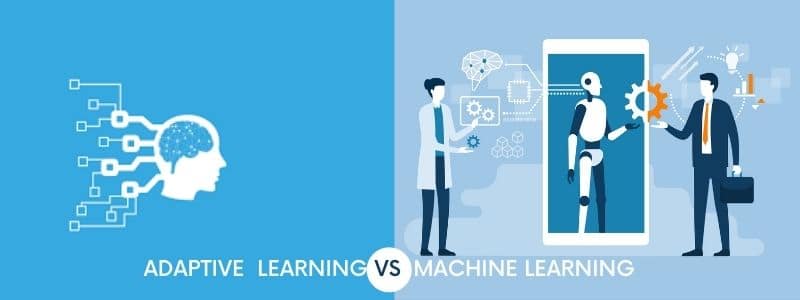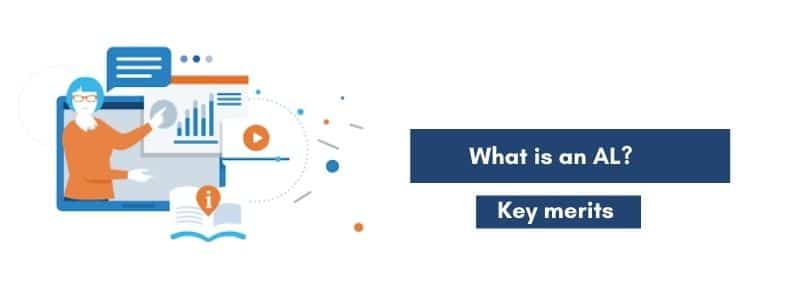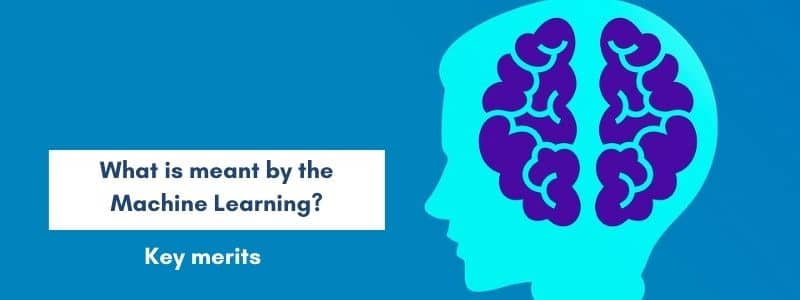In the technology era, organizations opt for different technological tools beyond Artificial Intelligence (AI). Mostly, Machine Learning (ML) is used to enhance business operation, and that is why 65% of the organizations worldwide are planning to count on the same solution. Thus, the expected annual growth between 2018 to 2024 will be 42.08%.
But there is one more factor that makes ML more crucial Adaptive Learning (AL). The AL has become a hot topic for several educational organizations and corporate organizations. Also, many clients worldwide think they are the same. However, there are some crucial differences that every client should know. Let us explore six of them, but before that, discuss what they are and their advantages.
Table of Contents
What is an AL?
Adaptive Learning (AL) is the learning process that involves computer algorithms to evaluate learners’ efficiency. In this digital era, 70% of organizations worldwide are planning to embrace this advanced technology. Not only does it bridge the gap of human resources in educational organizations, but it also delivers 100% accurate results. Read on some benefits associated with it.
Key Merits of an Adaptive Content
1. Predictions based on the data
Remember that the AL model is based on a single channel to manage data and provide feedback. With this advanced approach, companies get regular feedback on the progress of a particular task. Adaptive technology monitors the data and gives feedback according to the changing activity.
Thus, it gives precise results based on the input that clients or companies give. Moreover, this technology makes a prediction based on the data and suggests relevant activities performed. The best example of it is the online tests with an automated report system.
2. Agility, efficiency, and robustness
The three major USPs of this adaptive technology are higher efficiency, agility, and robustness. Robust is in terms of accomplishing algorithms which higher precision. Also, this technology accomplishes less use of resources (Digital tools like power, workstation and etc.).
Then, it is agile to manage and adjust current operational needs. Thus, implementing this technology into the learning modules gives learners the freedom to navigate sophisticated content without losing confidence.
3. One-to-one instructions
Although for clients, it would be a challenging task to focus on several learning groups. But this learning model focuses on the individual and their progress. In this, computer algorithms are accustomed to the user’s requirements, activities, and responses. In return, the computer guides the individual to perform the activity.
Machine generated guides are efficient, which boosts confidence. That is why 70% of organizations worldwide have planned to embrace this learning model to facilitate corporate training.
What is meant by the ML?
Machine Learning (ML) means users put the data or instructions in the computer to make it deliver accurate and precise predictions. One of its best examples is spotting humans in front of self-driving cars. This phenomenon is called image recognition which is a part of ML. This ML model uses historical data to predict the outcome or output values.
Key merits of the ML model
1. Everything is automated
No doubt, the ML model reduces time and effort. But it also automates every activity. According to one market report, 66% of market leaders believe that this technological tool will help their business in achieving positive results through automation. More facts? In a survey, 50% of organizations have incentives for investment in ML automation.
2. More efficient in the data handling
The ML is a big player when it comes to handling volumes of data. It could be of any type or any size. That is why the market adoption rate of the ML model will be 46% in 2021. Data is oxygen for every business. So, the ML model manages and analyzes the data in a quicker and efficient manner. Hence, it has become a reliable model in today’s date.
3. Good for the education and eCommerce sector
Like adaptive solutions for learning, ML is also a good educational tool that provides creative techniques to streamline the learning process. China is the perfect example where the government is using ML to help learners focus on their studies.
For eCommerce sectors, it helps in search results considering consumers’ browsing history or preference. Also, it provides a search ranking based on the consumer’s relevance and purchasing history. Thus, till 2020, most of the eCommerce giants handled 80% of the consumer interaction through the ML model.
6 Major differences about the AL and ML
- Channel system: The ML model is based on two channel system, which means data is divided into two different channels. But the AL has only one channel to manage and analyze the data.
- Flexibility: The ML is not so more flexible and requires more time to change the behaviour system of algorithms. On the other hand, the AL model adapts to the changing behaviour of users and provides relevant feedback on real-time data.
- Learn from the past: The ML stores, analyze, and acts on the past data of users. Thus, it delivers accurate results. Whereas the AL model only focuses on the present data and provides feedback on the same.
- Feedback loop system: The ML uses the feedback loop system where a few portions of some system’s output are used as input for future behaviour. At the same time, the AL model does not possess the same.
- Industrial limitation: The ML model is mostly used for automation purposes and industrial activity. But the AL model is limited to the learning purpose as of now.
- Market share: The AL model has a market share of only 35%, whereas the ML model is a part of the 46% market.
Author Bio:
Hope James is a certified, experienced and proficient content writer associated with Acadecraft USA. She has years of experience in writing technical blogs, B2B content and curating 100% genuine write-ups.





